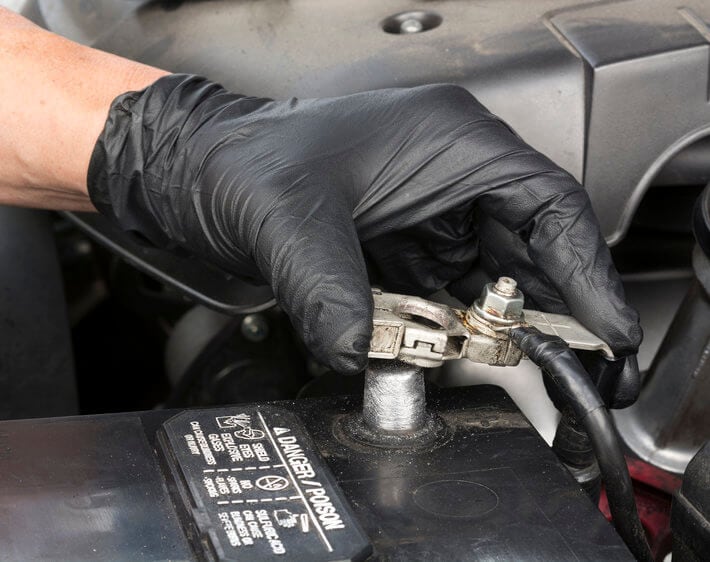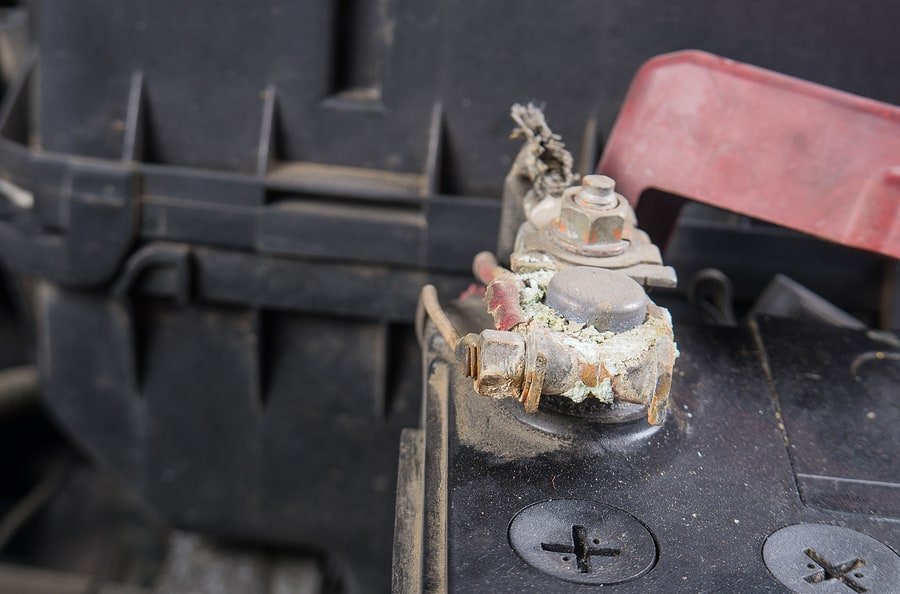- Jeep Cherokee Push Button Start Not Working: Troubleshooting Tips To Get You Back on the Road Fast! - 11 November 2023
- Haval H2 Problems: The Complete Troubleshooting Guide - 11 November 2023
- Gwm P Series Problems: Troubleshooting Guide for Common Issues - 11 November 2023
To clean battery terminals without baking soda, you can use alternatives like coca cola or lemon juice as a cleaning liquid. These options provide similar results to baking soda in water, as the carbonation helps with the cleaning process.
If you prefer not to use commercial chemical solutions, lemon juice can be used but may not be as effective as vinegar or baking soda. Additionally, neutralizing the discharge with an acid like lemon juice or vinegar and using a cotton swab to apply a few drops can help remove corrosion.
Remember to ensure the chosen solution is appropriate for the type of battery acid being dealt with.
Method 1: Using Coca Cola As A Cleaning Liquid
Many people believe that baking soda is the go-to solution for cleaning battery terminals. However, if you don’t have baking soda on hand, you can also use Coca Cola as an alternative cleaning liquid. The carbonated water in Coca Cola is what helps to clean the battery terminals, just like baking soda mixed with water. In this article, we will discuss how to effectively clean battery terminals using Coca Cola.
How Carbonated Water In Coca Cola Helps Clean Battery Terminals
The carbonated water in Coca Cola contains carbonic acid, which can help dissolve the corrosion on battery terminals. The fizzing action of the carbonation can help to break down the buildup and make it easier to remove. While Coca Cola may not be as effective as baking soda, it can still help to improve the conductivity of your battery terminals and prevent further corrosion.
Steps To Clean Battery Terminals Using Coca Cola
- Start by gathering the necessary tools and materials. You will need a bottle of Coca Cola, a toothbrush or wire brush, a clean cloth, and gloves for hand protection.
- Make sure the car engine is turned off and the keys are removed from the ignition to avoid any accidents.
- Put on your gloves to protect your hands from the Coca Cola and any chemical residue.
- Open the hood of your car and locate the battery. Identify the positive terminal (marked with a “+” symbol) and the negative terminal (marked with a “-” symbol).
- Pour some Coca Cola onto the toothbrush or wire brush, ensuring the bristles are coated.
- Gently scrub the terminals with the Coca Cola-soaked brush, paying attention to any visible corrosion or buildup.
- Continue scrubbing until the corrosion is loosened and removed from the terminals.
- Once the corrosion is removed, use a clean cloth or paper towel to wipe away any remaining Coca Cola residue from the battery terminals.
- Give the terminals a final wipe with a damp cloth to ensure all traces of Coca Cola are removed.
- Close the hood of your car and ensure that the battery terminals are securely tightened.
Precautions To Take While Using Coca Cola As A Cleaning Agent
While Coca Cola can be effective for cleaning battery terminals, it is important to take certain precautions:
- Ensure that the car engine is turned off and the keys are removed from the ignition before starting the cleaning process.
- Wear gloves to protect your hands from the Coca Cola and any chemical residue.
- Do not let the Coca Cola sit on the battery terminals for an extended period. Complete the cleaning process and rinse the terminals thoroughly to prevent any potential damage caused by the acidity of the Coca Cola.
- Be careful when handling the battery terminals to avoid any electric shock or short-circuiting.
By following these steps and precautions, you can effectively clean your battery terminals using Coca Cola as a cleaning liquid. Remember to regularly check and clean your battery terminals to ensure proper functioning and prolong the life of your car battery.
Method 2: Lemon Juice As An Alternative
To clean battery terminals without baking soda, you can try using lemon juice as an alternative. Apply a few drops of lemon juice to the affected area, and the corrosion should start to fizz and disintegrate.
If you’re looking for an alternative to baking soda for cleaning battery terminals, lemon juice can be an effective option. Lemon juice contains citric acid, which acts as a natural cleaning agent, breaking down the corrosion on the terminals.
How Lemon Juice Can Be Used To Clean Battery Terminals
To clean battery terminals with lemon juice, follow these simple steps:
- Start by disconnecting the battery cables. This is an important safety precaution to avoid any accidental electrical shock.
- Squeeze fresh lemon juice into a small container or a cup. You can also use bottled lemon juice if fresh lemons are not available.
- Dip a clean cloth or a cotton swab into the lemon juice, ensuring it is soaked well.
- Gently rub the soaked cloth or cotton swab onto the battery terminals, focusing on the areas with corrosion or buildup.
- Continue rubbing the terminals until the corrosion starts to break down and dissolve.
- Once the corrosion is removed, wipe the terminals clean with a dry cloth to remove any remaining residue.
- Finally, reconnect the battery cables securely, ensuring they are tightened properly.
It’s important to note that lemon juice can be effective in cleaning mild to moderate corrosion on battery terminals. However, for heavy buildup or severe corrosion, it may be more effective to use vinegar or baking soda.
Comparing The Effectiveness Of Lemon Juice With Vinegar And Baking Soda
When it comes to cleaning battery terminals, vinegar and baking soda are often considered more effective than lemon juice. Vinegar is highly acidic, which helps in breaking down the corrosion quickly. Baking soda, on the other hand, is alkaline and neutralizes the battery acid, making it easier to remove the buildup.
That being said, lemon juice can still be a viable option, especially if vinegar or baking soda are not readily available. Lemon juice contains citric acid, which can react with the corrosion and gradually dissolve it. However, it may require a bit more time and effort compared to vinegar or baking soda.
In conclusion, lemon juice can be an effective alternative for cleaning battery terminals when vinegar or baking soda are not accessible. While it may not be as powerful, it can still yield satisfactory results. Just remember to exercise caution and ensure the battery is disconnected before attempting any cleaning.
Method 3: Vinegar As An Alternative
Vinegar is an effective alternative to clean battery terminals without using baking soda. Simply soak a cloth in vinegar and wipe away any corrosion or buildup on the terminals for a quick and easy cleaning solution.
Exploring Vinegar As A Natural And Effective Cleaning Agent For Battery Terminals
Vinegar is a versatile household item that can be used for more than just adding flavor to your favorite meals. When it comes to cleaning battery terminals without baking soda, vinegar proves to be a fantastic alternative. Not only is vinegar a natural and eco-friendly cleaning agent, but it is also highly effective in removing corrosion and buildup from battery terminals. In this method, we will explore how vinegar can be used to clean battery terminals efficiently and safely.
Step-by-step Instructions For Cleaning Battery Terminals With Vinegar
- Start by ensuring the device powered off and disconnect the battery cables. It’s crucial to work on battery terminals safely to avoid any electrical accidents.
- Take a small container and fill it with vinegar. You can use white distilled vinegar or apple cider vinegar, both work effectively for this purpose.
- Lift each terminal clamp and submerge them into the container filled with vinegar.
- Using a solution-filled bottle, pour vinegar over the clamps ensuring they are fully covered.
- Allow the terminals to soak in the vinegar for about 5-10 minutes. This will help loosen the corrosion and make it easier to remove.
- After the soaking period, use a wire brush or an old toothbrush to gently scrub away any remaining corrosion on the terminals.
- Rinse the terminals with water to remove any vinegar residue.
- Dry the terminals thoroughly using a clean cloth or paper towel before reconnecting the battery cables.
Tips For Using Vinegar Safely And Effectively On Battery Terminals
To ensure safe and effective use of vinegar on battery terminals, consider the following tips:
- Always wear protective gloves and eyewear when working with batteries and cleaning agents.
- Make sure the battery device is turned off before disconnecting any cables.
- Avoid using excessive force when scrubbing the terminals to prevent damage.
- After cleaning, thoroughly rinse the terminals with water to remove any remaining vinegar.
- Ensure the battery terminals are completely dry before reconnecting the cables to prevent any electrical issues.
- Dispose of the used vinegar safely, following proper environmental guidelines.

Credit: www.firestonecompleteautocare.com
Frequently Asked Questions For How To Clean Battery Terminals Without Baking Soda
How Do You Clean Battery Terminal Corrosion Without Baking Soda?
To clean battery terminal corrosion without baking soda, you can try using coca cola or lemon juice as a cleaning liquid. Simply apply a few drops of the chosen liquid to the affected area and let it fizz and disintegrate the corrosion.
Other alternatives like vinegar can also be used.
How Do You Neutralize Battery Acid Without Baking Soda?
To neutralize battery acid without baking soda, you can use alternative solutions like lemon juice or vinegar. Simply apply a few drops of either solution to the affected area and watch as the corrosion starts to fizz and disintegrate. Just make sure to power off the device and use a cotton swab for application.
Remember to choose the appropriate solution for the type of battery acid you’re dealing with.
What Is A Good Substitute For Battery Terminal Cleaner?
A good substitute for battery terminal cleaner is a mixture of baking soda and water. Coat the terminals with baking soda, pour water on them, and scrub with a brush. Use a steel wire brush if possible, or an old toothbrush with enough effort.
What Is The Best Home Remedy To Clean Battery Terminals?
One effective home remedy to clean battery terminals is using a mixture of baking soda and water. Apply the solution to the terminals using a brush and scrub away the corrosion. Rinse off with clean water after cleaning. Another option is using vinegar instead of baking soda.
How Do I Clean Battery Terminals Without Baking Soda?
You can clean battery terminals without baking soda by using alternative options such as vinegar or lemon juice. These acidic substances can effectively remove the corrosion.
Conclusion
To clean battery terminals without baking soda, there are several alternative solutions you can try. Some people have reported success using Coca Cola as a cleaning liquid, due to its carbonated properties. If you prefer natural remedies, lemon juice can be used, although it may not be as effective as vinegar or baking soda.
Remember to exercise caution and ensure the chosen solution is appropriate for the type of battery acid you are dealing with. Whether you choose a commercial solution or a DIY approach, regular cleaning of battery terminals is essential for maintaining proper functionality.


